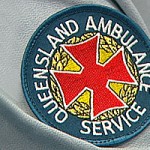
February 25, 2022
The State Government is urging dog owners to maintain an effective tick control program after the deadly tick-borne disease ehrlichiosis was confirmed in the State last month.
Ehrlichiosis is caused by the bacteria Ehrlichia canis and spread by brown dog ticks, common in most areas of northern Australia.
The disease was first detected in May 2020 in domesticated dogs in the Halls Creek and Kununurra areas of Western Australia.
Since then, dogs have become infected in the Northern Territory and northern South Australia.
In January, ehrlichiosis was confirmed in a dog in north-west Queensland which had not travelled outside the State, meaning the bacteria has now spread into the local tick population.
Agriculture Minister Mark Furner said with the wet season now well under way, dog owners should do all they could to protect their animals from the disease.
“We do not want dog owners to go through the trauma of seeing their beloved dogs suffering the effects of this horrible disease,” Mr Furner said
“As ticks are more prevalent during the wet season, I cannot stress enough that, to prevent canine ehrlichiosis, dogs should be on a tick prevention program that repels and kills ticks preventing them from attaching to the dog.
“Dog owners should also watch for any signs of illness, avoid taking dogs into tick-infested areas such as the bush where possible, and regularly inspect dogs for ticks and carefully remove ticks.
“Whether your dogs are working dogs or family pets, the only tick they should get is the one that shows you have taken them to your local vet to get good advice and appropriate products to protect them.
“Although they can vary considerably among dogs, clinical signs typically include fever, lethargy, enlarged lymph nodes, loss of appetite, discharge from the eyes and nose, weight loss, and anaemia and bleeding disorders.
“Everyone involved with dogs has a general biosecurity obligation under the Biosecurity Act 2014 to take all reasonable steps to ensure they do not spread a pest, disease or contaminant, including E. canis.
“Ehrlichiosis is a nationally notifiable disease and anyone who suspects a dog is showing signs of the disease must report it immediately to the Emergency Animal Disease Watch Hotline on 1800-675-888.”
- More information is available online























